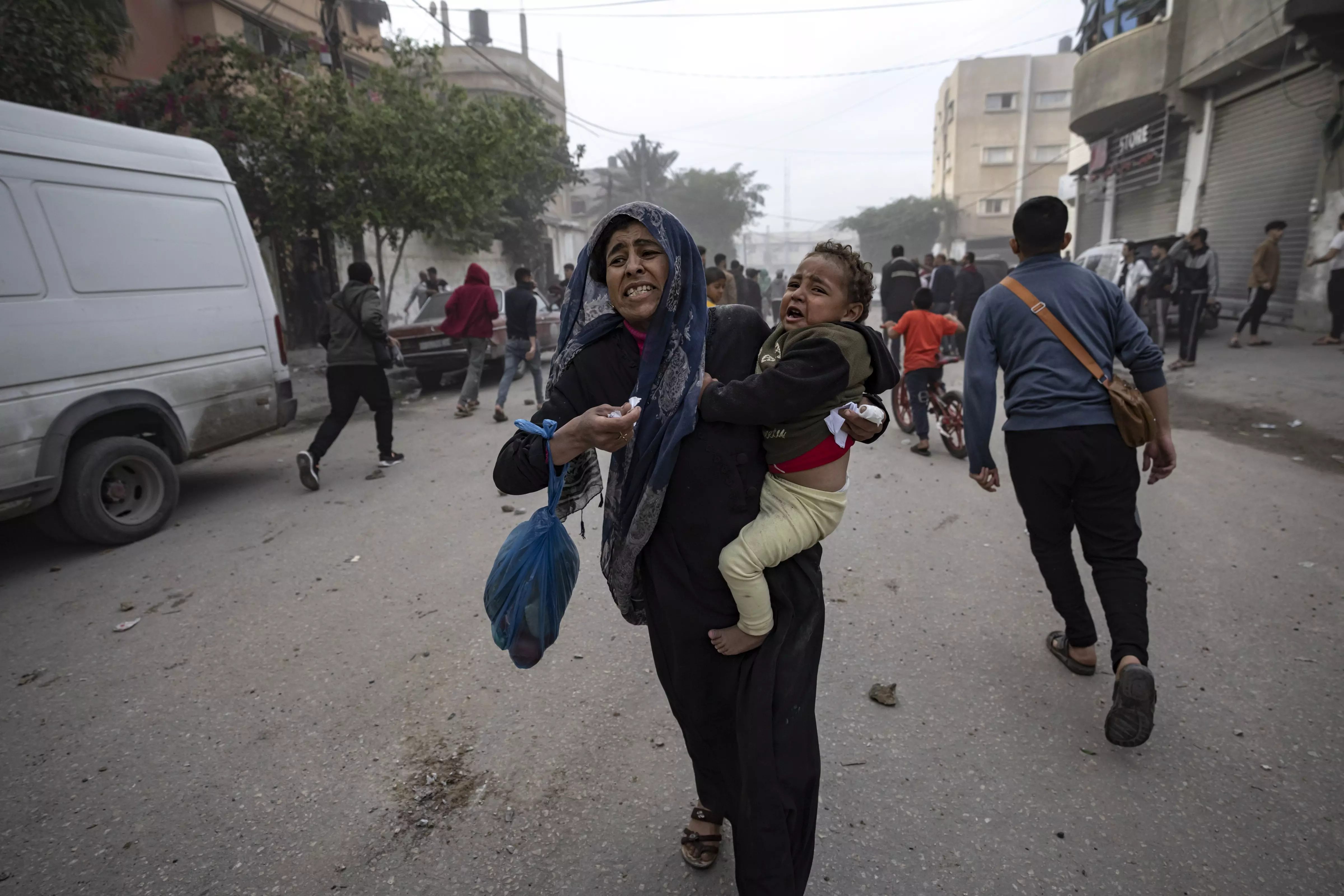
UN Security Council delays vote on Gaza aid resolution amid talks on wording to avoid US veto

United Nations, Dec 21 (AP) The U.N. Security Council on Wednesday again delayed a vote on a new resolution about desperately needed aid to Gaza until the following day as the Biden administration struggles to change key wording in high-level negotiations seeking to avoid a U.S. veto.
The United States seeks to change the text's references to a cessation of hostilities in the Israel-Hamas war, and the part about putting the United Nations in charge of inspecting trucks to ensure they are actually carrying humanitarian goods, which Israel opposes.
Ambassador Lana Nusseibeh of the United Arab Emirates, which sponsored the Arab-backed resolution, said very high-level discussions are taking place to try to reach agreement on a text that can be adopted.
“Everyone wants to see a resolution that has impact and that is implementable on the ground,” she told reporters after the 15 council members held closed consultations. “We believe today, giving a little bit of space for additional diplomacy, could yield positive results.” Nusseibeh said the UAE is going to be optimistic and try to reach an agreement, but if the negotiations yield no results by Thursday, “then we will assess in the council to proceed at pace to a vote on the resolution.” The vote — initially set for Monday and then pushed back to Tuesday and then Wednesday — is now expected on Thursday morning.
The initial text called "for the urgent suspension of hostilities to allow safe and unhindered humanitarian access, and for urgent steps towards a sustainable cessation of hostilities.” It also calls for U.N. Secretary-General Antonio Guterres to quickly establish a mechanism for exclusive U.N. monitoring of aid deliveries to Gaza — bypassing the current Israeli inspection of aid entering the territory.
U.S. National Security Council spokesman John Kirby raised two other issues Wednesday morning that are not in the Arab-sponsored resolution — condemnation of the deadly Hamas incursion into southern Israel that sparked the war on Oct. 7.
“It's important for us, if the Security Council is going to speak on this, that there's a condemnation of Hamas and what they did on the 7th of October, there's a recognition of the need for Israel to be able to defend itself, and there's of course, significant commitment by all members on getting humanitarian assistance into the people of Gaza,” Kirby told reporters aboard Air Force One as President Joe Biden was en route to Wisconsin.
Secretary of State Antony Blinken told a Washington news conference later Wednesday that the U.S. has engaged intensively and “in very good faith” in negotiations on the resolution, “so I hope we can get to a new place.” The U.S. on Dec. 8 vetoed a Security Council resolution backed by almost all other council members and dozens of other nations demanding an immediate humanitarian cease-fire in Gaza. The 193-member General Assembly overwhelmingly approved a similar resolution on Dec. 12 by a vote of 153-10, with 23 abstentions.
In its first unified action on Nov. 15, with the U.S. abstaining, the Security Council adopted a resolution calling for “urgent and extended humanitarian pauses” in the fighting, unhindered aid deliveries to civilians and the unconditional release of all hostages.
The U.S. has repeatedly called for condemnation of Hamas' surprise attack in southern Israel, and for recognition of Israel's right to self-defense, which have not been included in any of the resolutions that have been adopted – or the latest draft before the council.
Israeli President Isaac Herzog said during a briefing with ambassadors Tuesday that Israel is “ready for another humanitarian pause and additional humanitarian aid in order to enable the release of hostages.” Security Council resolutions are important because they are legally binding, but in practice many parties choose to ignore the council's requests for action. General Assembly resolutions are not legally binding, though they are a significant barometer of world opinion.
Nearly 20,000 Palestinians have been killed, according to the Gaza Health Ministry, since Israel declared war on Hamas following the Oct. 7 attacks that killed about 1,200 people — mostly civilians. The militants took about 240 hostages back to Gaza.
Hamas controls the Gaza Strip, and its Health Ministry does not differentiate between civilian and combatant deaths. Thousands more Palestinians lie buried under the rubble of Gaza, the U.N. estimates. AP

